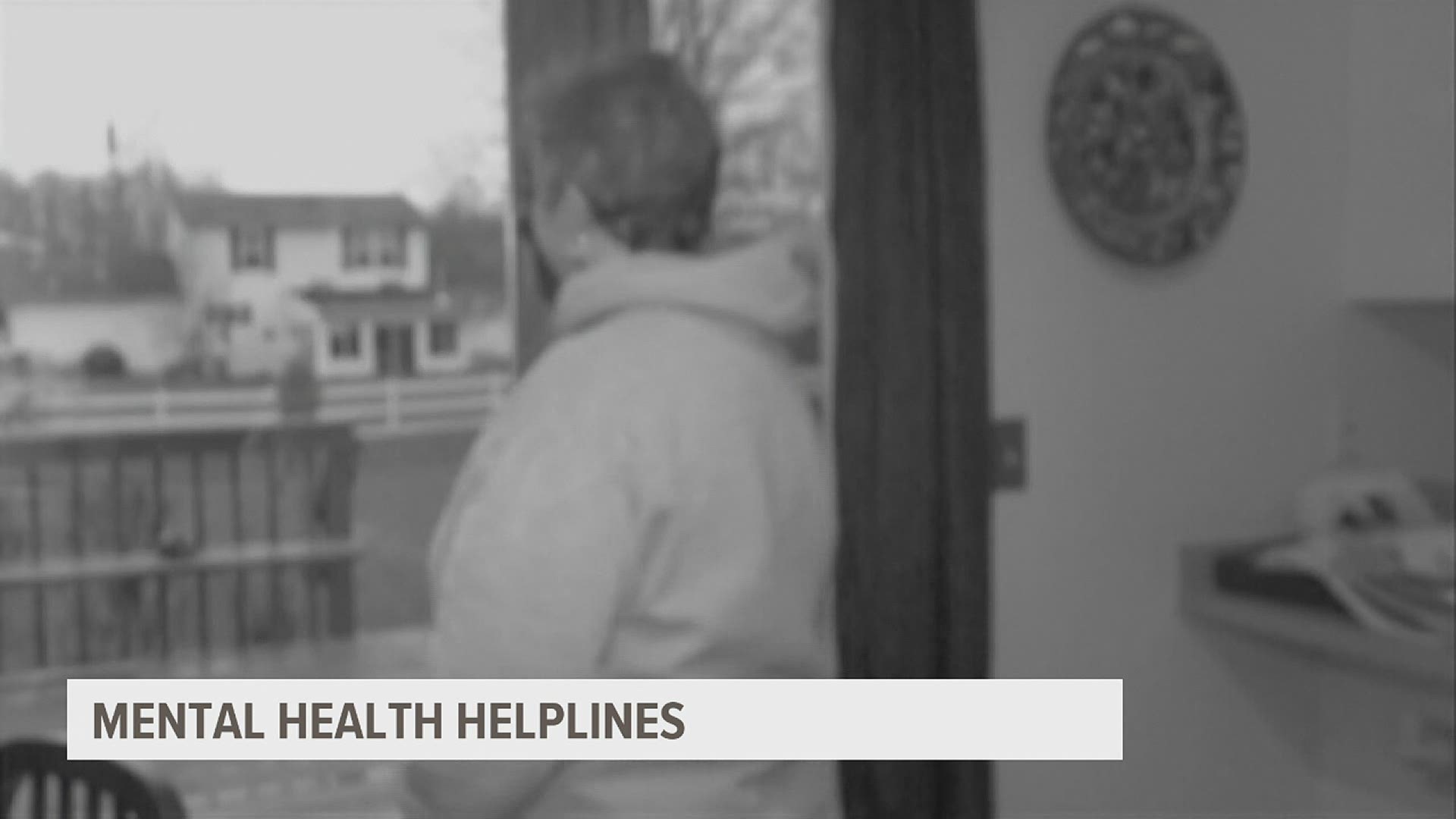PENNSYLVANIA, USA — Months deep into a public health crisis with no clear end in sight, and there is building worry about the long-lasting impact COVID-19 could have on mental health.
Federal and state officials have been doing their part to ramp up mental health awareness efforts. In October, President Donald Trump signed legislation designating the 3-digit number "988" as the National Suicide Prevention Lifeline's number. Health experts believe adding one less barrier for someone in a mental health crisis will make it easier for them to reach out.
However, in the middle of a global pandemic, Pennsylvania officials realized there was more work that needed to be done.
"These are prolonged difficulties, that we expect to continue to see grow, even after the immediate risk of physical health goes away," said Kristen Houser with the state Office of Mental Health and Substance Abuse services. "We recognized that COVID-19 was not just a public health issue regarding contagion and illness, but really was creating a second public health issue around mental health and well-being. And we wanted people to be able to be connected to trained professionals, to connect them to local resources that they’ve maybe never needed to use before." Houser continued.
Houser says with the launch of the COVID-19 PA Support & Referral Helpline in April, people can now call about less serious worries and concerns about the virus.
The helpline was first funded by the Department of Human Services for three months, though, Houser said it was then clear the virus wasn't going anywhere. By creating a partnership with the Federal Emergency Management Agency through the Pennsylvania Emergency Management Agency, the department was able to utilize the COVID-19 crisis counselor program for continued funding opportunities.
The department also partnered with the Center for Community Resources, to answer calls across the commonwealth about food security, housing assistance, and more.
Katie Doerr is the Director of Programs for CCR West, and one of the voices behind the phones. She says while the lines are different, the staffing qualifications remain similar.
"All staff here we do go through an extensive training process, because they are crisis counselors as well, so they’re in crisis roles. So when they’re switching in between the crisis line or the support and referral line they have an extensive training period," said Doerr. "Whether it’s mandated reporting, ethics, different areas of like child abuse, domestic violence. Things just to be aware of if we’re on a call with somebody that we can help support them in any type of situation they’re in."
Both women told FOX43 that the majority of initial calls to the COVID-19 Helpline were about fears of the unknown, and now, Houser says about 55% of the calls are related to mental health and substance abuse issues.
So, what's next for the hotline?
"I believe we need to see what happens with the pandemic, see what happens with the availability of other services, and see how the implementation of 988 may or may not increase call volumes in Pennsylvania. So, having a helpline is just the first step, but it's really important that we continue to invest in our community-based services for mental health and substance abuse treatment," Houser says.
And whether you feel like you yourself are in a severe mental health crisis, you know someone struggling, or you may just need a listening ear - the message remains the same from both women, talk.
"We have to make it welcoming and non-judgemental for that person, that they feel they can have that conversation with their friend or family member or neighbor" Doerr reminds everyone.
If you need to access the National Suicide Support Lifeline, the 988 number will remain inactive until July 2022, so please dial 1-800-273-8255.
If you need to access the PA Support & Referral Helpline, dial 1-855-2842494
The Department of Human Services and Center for Community Resources also have additional resources available on their websites.

